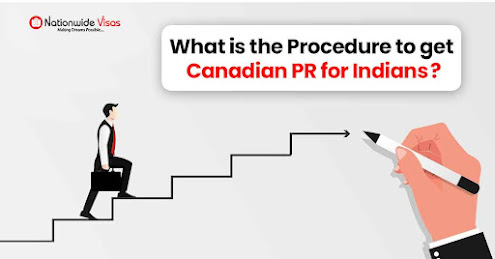Are you dreaming of exploring the stunning landscapes and vibrant cities of Canada? Before you pack your bags, there's one crucial step to take - getting a Canada Tourist Visa.
Canada welcomes millions of temporary visitors each year. Going through the visa application process may seem a bit overwhelming at times - but fear not! We've got you covered with 7 simple tips from experts to help you successfully apply for a Canada Tourist Visa.
Start Early: Plan Ahead for a Stress-Free Journey
The first key to a successful Canada Tourist Visa application is to start early. Give yourself plenty of time to gather all the required documents, fill out forms, and handle any unexpected issues that may arise. Rushing through the process can lead to mistakes, so take a deep breath and begin your journey to Canada with a well-thought-out plan.
Understand the Visa Types: Choose Wisely
Canada offers different types of tourist visas, and it's crucial to choose the one that fits your travel plans. The most common is the Temporary Resident Visa (TRV), but there are also Electronic Travel Authorizations (eTA) for certain countries. Make sure that you understand the specific requirements for the visa type you need, as each has its own set of conditions and eligibility criteria.
Accurate Documentation: Double-Check Everything
Accurate documentation is the key to a successful visa application. Make a checklist of all the required documents, including your passport, proof of funds, travel itinerary, and any supporting letters. Ensure that all information is up-to-date and matches the details on your application form. Even a small inconsistency can lead to delays or, worse, a visa rejection.
Financial Proof: Show You Can Afford Your Trip
Canada wants to make sure that you can cover your expenses during your stay. Provide clear and comprehensive proof of your financial ability, such as bank statements, pay stubs, or a letter from your employer. This helps establish your credibility and assures the visa officers that you won't face financial challenges during your visit.
Demonstrate Ties to Your Home Country: Show You'll Return
Visa officers want to be sure that you'll return to your home country after you visit Canada. Provide evidence of your ties, such as a letter from your employer, property ownership documents, or any commitments that require your presence back home. This helps build trust and increases the chances of a positive visa decision.
Honesty is the Best Policy: Be Transparent in Your Application
Honesty is crucial throughout the Tourist Visa application process. Provide accurate information in your application, and don't attempt to hide any details, even if you think they may be insignificant. Visa officers appreciate transparency, and attempting to deceive them can result in serious consequences, including visa rejection and potential bans from future applications.
Seek Professional Advice: Consider a Consultation
If you find the visa application process confusing or overwhelming, consider seeking professional advice. Consult with immigration and visa consultants or use online resources provided by the official Canadian immigration website. They can guide you through the process, clarify any doubts, and ensure that your application is as strong as possible.
Good to know!
Canadian work regulations apply to individuals who are not Canadian citizens or permanent residents. Visitors with a Canada Tourist Visa must adhere to specific regulations before seeking employment in Canada. The Tourist Visa allows temporary entry into Canada, providing legal status for the duration of the visa's validity. However, holders cannot apply for Canada PR visa, work permit, or study visa. Additionally, applying for a study permit while in Canada on a visitor status is generally not permitted, except in certain circumstances.
While under a Canada Tourist Visa, individuals are permitted to enter and stay in Canada temporarily, allowing them to explore cities, job prospects, and cultural experiences. Tourist Visa holders can also search for work in Canada, although they must be transparent about their intentions, prove their intention to return to their home country and show they won't work without a valid permit. Other permissible activities include joining short-term courses, applying for an extension, performing certain business activities, and, under a temporary policy until February 2025, applying for a work permit if a valid job offer is received while in Canada on a Tourist Visa.
That’s it!
Applying for a Canada Tourist Visa doesn't have to be a daunting task. With careful planning, accurate documentation, and a commitment to transparency, you can increase your chances of a successful Canada Immigration. By following these seven tips, you'll be one step closer to experiencing the beauty and warmth of Canada on your dream vacation.
Safe travels!








